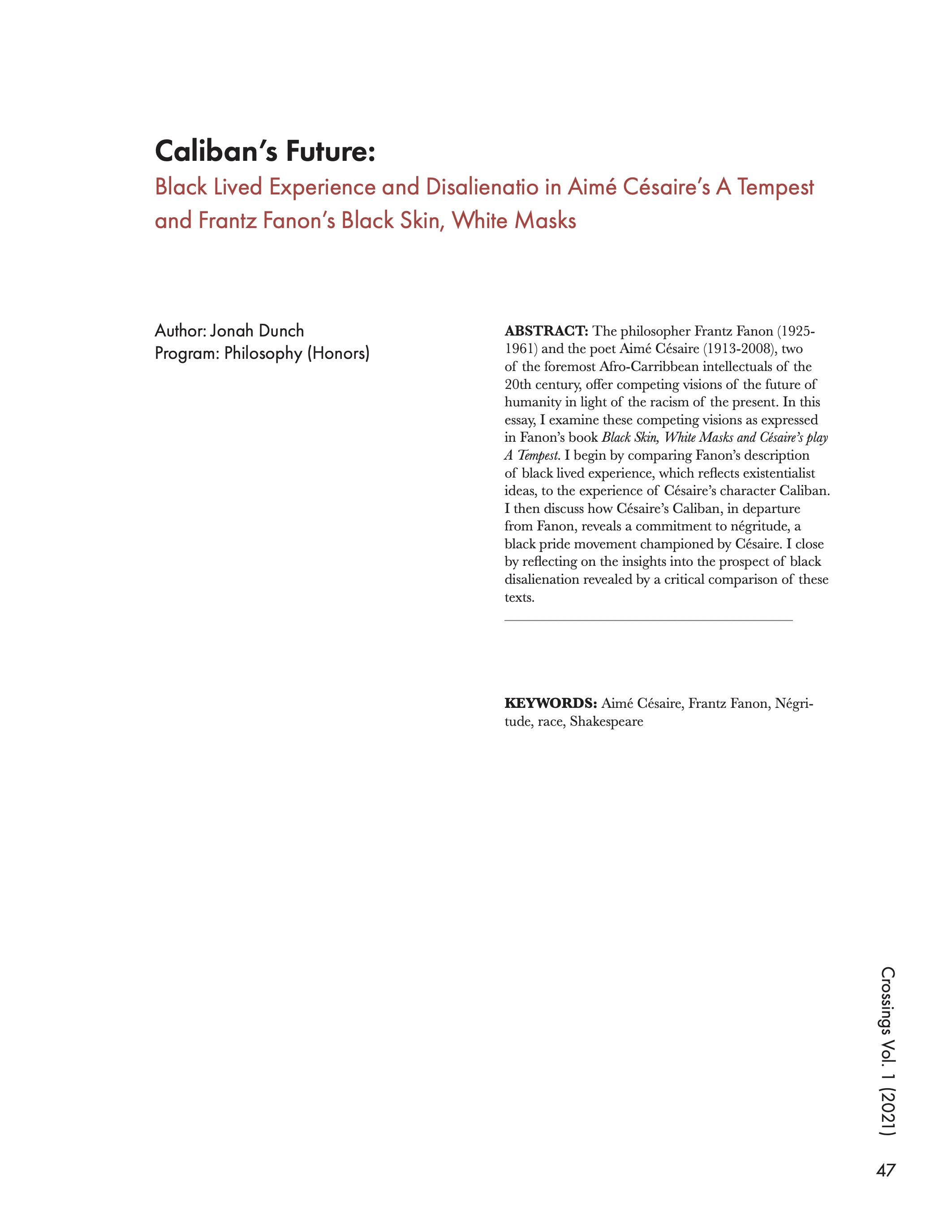Caliban's Future
Black Lived Experience and Disalienation in Aimé Césaire’s A Tempest and Frantz Fanon’s Black Skin, White Masks
DOI:
https://doi.org/10.29173/crossings25Abstract
The philosopher Frantz Fanon (1925-1961) and the poet Aimé Césaire (1913-2008), two of the foremost Afro-Carribbean intellectuals of the 20th century, offer competing visions of the future of humanity in light of the racism of the present. In this essay, I examine these competing visions as expressed in Fanon’s book Black Skin, White Masks and Césaire’s play A Tempest. I begin by comparing Fanon’s description of black lived experience, which reflects existentialist ideas, to the experience of Césaire’s character Caliban. I then discuss how Césaire’s Caliban, in departure from Fanon, reveals a commitment to négritude, a black pride movement championed by Césaire. I close by reflecting on the insights into the prospect of black disalienation revealed by a critical comparison of these texts.

Downloads
Published
Issue
Section
License
Copyright (c) 2021 Jonah Dunch

This work is licensed under a Creative Commons Attribution 4.0 International License.

